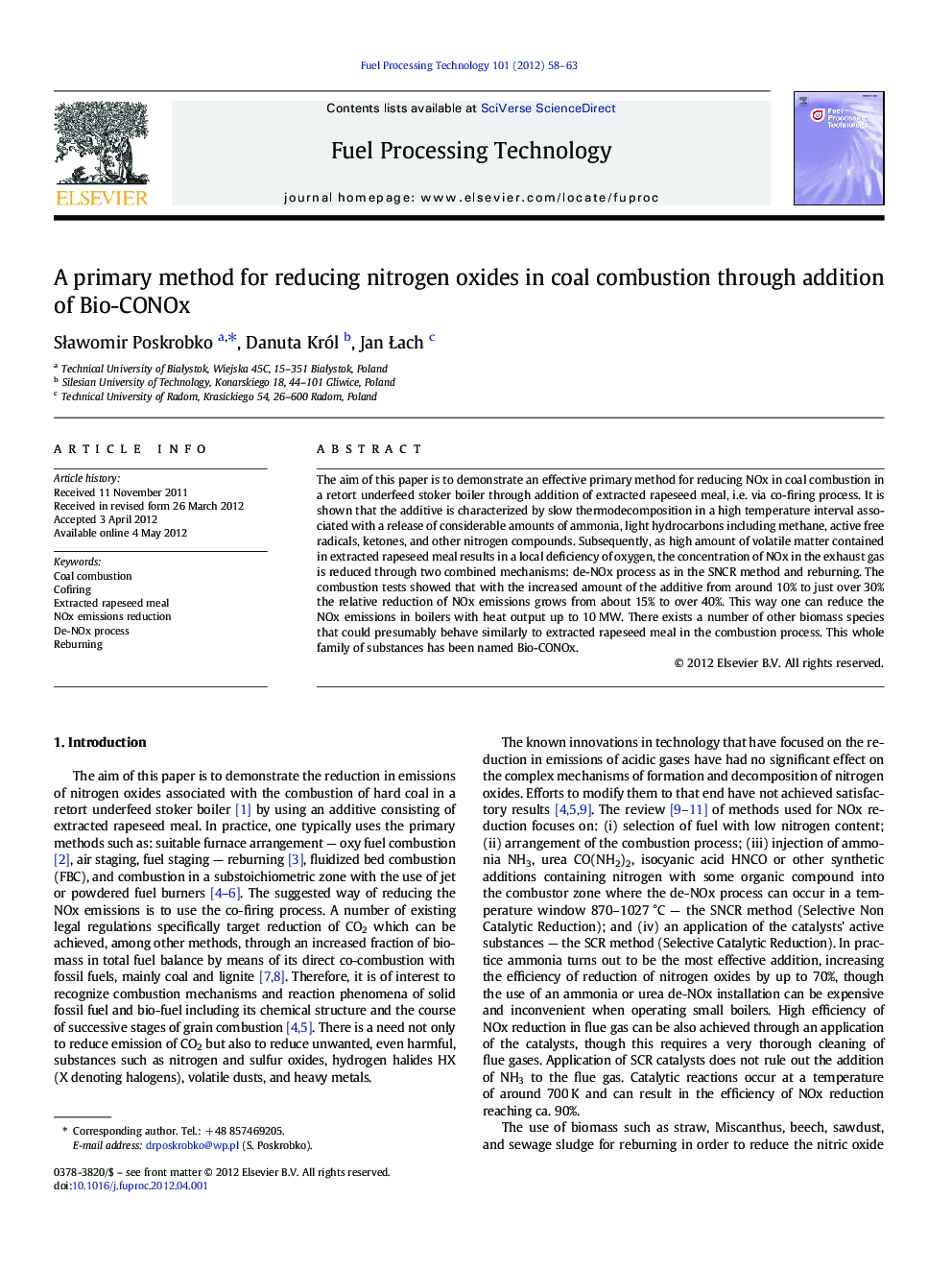| Article ID | Journal | Published Year | Pages | File Type |
|---|---|---|---|---|
| 210236 | Fuel Processing Technology | 2012 | 6 Pages |
The aim of this paper is to demonstrate an effective primary method for reducing NOx in coal combustion in a retort underfeed stoker boiler through addition of extracted rapeseed meal, i.e. via co-firing process. It is shown that the additive is characterized by slow thermodecomposition in a high temperature interval associated with a release of considerable amounts of ammonia, light hydrocarbons including methane, active free radicals, ketones, and other nitrogen compounds. Subsequently, as high amount of volatile matter contained in extracted rapeseed meal results in a local deficiency of oxygen, the concentration of NOx in the exhaust gas is reduced through two combined mechanisms: de-NOx process as in the SNCR method and reburning. The combustion tests showed that with the increased amount of the additive from around 10% to just over 30% the relative reduction of NOx emissions grows from about 15% to over 40%. This way one can reduce the NOx emissions in boilers with heat output up to 10 MW. There exists a number of other biomass species that could presumably behave similarly to extracted rapeseed meal in the combustion process. This whole family of substances has been named Bio-CONOx.
Graphical abstractFigure optionsDownload full-size imageDownload as PowerPoint slide
